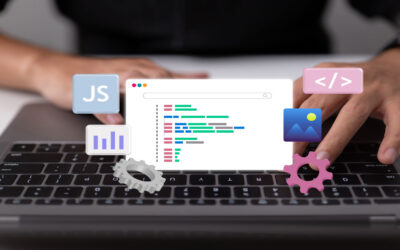Introduction
In the world of frontend development, where creativity meets functionality, the importance of clean code cannot be overstated. Clean code is not just about aesthetics; it’s about creating a solid foundation for sustainable and efficient development. Let’s delve into why clean code is crucial in frontend development and how it can benefit both developers and end-users alike.
Maintainability
Clean code is easily understandable and well-organized, making it simpler for developers to maintain and update. When code is clean, developers can quickly identify and fix bugs, add new features, or refactor existing ones without causing unintended side effects. This results in a more agile development process and reduces the time and effort required for maintenance tasks.
Collaboration
In collaborative environments, clean code acts as a common language that fosters effective communication among team members. When code is clean and readable, it becomes easier for developers to collaborate, review each other’s work, and provide constructive feedback. This leads to better teamwork, smoother workflows, and ultimately, higher-quality frontend solutions.
Scalability
Clean code is scalable code. It lays the groundwork for building applications that can grow and evolve over time without becoming overly complex or unmanageable. By adhering to coding standards and best practices, developers can design frontend architectures that are flexible and extensible, allowing for seamless integration of new features and enhancements as requirements change.
Performance
Well-structured and optimized code contributes to better performance in frontend applications. Clean code minimizes unnecessary bloat and overhead, resulting in faster load times, smoother animations, and improved responsiveness. By following performance optimization techniques and avoiding common pitfalls, developers can deliver frontend experiences that are both efficient and user-friendly.
Debugging and Troubleshooting
Clean code simplifies the debugging and troubleshooting process. When code is organized and readable, developers can easily trace the flow of execution, identify the root cause of issues, and implement targeted fixes. This reduces the time spent on debugging and minimizes the risk of introducing new bugs while resolving existing ones.
Code Reusability
Clean code promotes code reusability, allowing developers to leverage existing components and modules across different parts of an application or even in future projects. By encapsulating functionality in modular and reusable units, developers can streamline development, maintain consistency, and avoid duplication of effort.
Enhancing User Experience
Clean code indirectly contributes to a better user experience. When frontend code is clean and well-organized, it results in smoother interactions, faster page load times, and overall improved usability. Users are more likely to engage with applications that are responsive, intuitive, and free from technical glitches or errors.
Conclusion
In the fast-paced world of frontend development, clean code is not just a preference; it’s a necessity. By prioritizing clean code practices, developers can build frontend solutions that are easier to maintain, more scalable, performant, and ultimately, more enjoyable for both developers and end-users. Clean code isn’t just good practice; it’s the foundation for building exceptional digital experiences.
Search
Categories
- AI 4
- Analytics & Data Science 16
- Blogs 8
- Brand Identity 23
- Business 11
- CMS & LMS 22
- Development 1
- Digital Marketing 20
- Digital Signage 13
- E-commerce 7
- Education & E-Learning 1
- Enterprise solution 16
- Events 2
- Food & Grocery 1
- Internet of Things 9
- Mobile App Development 15
- News 5
- Open Source Development 12
- SEO Search engine optimization 2
- Software 1
- Staff Augmentation 3
- Uncategorized 28
- Web Design 1
- Web Development 19
- Web Security and Performance 19
- Website Development 2
- WordPress Development 3
Recent Posts
-
Shopify Platform: Powering Scalable and Flexible E-Commerce Businesses
-
Anthropic AI Tool: A Safety-First Approach to Enterprise Artificial Intelligence
-
Analisi dei pro e contro nella scelta di un casino non ADM per il gioco d’azzardo
-
Les avantages de choisir un casino proposant des free spins attractifs pour les joueurs
-
Analyse approfondie des options de Jeu du poulet accessibles en ligne




